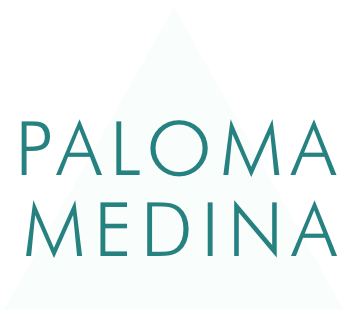FAQ: Recovering from Burnout?
Every now and then, one of the questions I get after a Healthy Productivity workshop is this:
”What about burnout that already happened, and though I’m not at that job anymore and my new role is much healthier and balanced, I still feel like I’m dealing with the aftermath of my burnout from my previous job. Does this make sense and if so, how can I properly recover from this burnout?”
Yes. This makes sense. In short, we need to treat burnout like an injury, such as a severe burn from a campfire, or bone fracture from skiing: it's not enough that you're no longer by the campfire or that you're no longer skiing, the injury still requires intense rest and treatment to heal. Burnout is not a concept, it rewires our brain towards unhealthy emotional, cognitive, and even physical habits and stimulus-responses. So simply leaving the old job may not be enough to reset your brain and body.
Below are a few suggestions that I’ve seen work well for myself and coaching clients, but in short - you’ll notice that none of these options are chillsies, "squeeze it in when you can" things. These options are for those of you who really don’t want this burnout thing to linger and keep affecting your emotional, cognitive or physical health anymore, so they do require setting aside a good chunk of time, more time than we usually presume, but they're worth it. Some of them suuuuuuuuck for the first few days/weeks because the brain deeply prefers to not be rewired :) but stick it out…your long-term health is worth it.
Important: I know that some of these are not accessible to everyone because of power/autonomy/financial and other unfair systems. That does not make these options luxuries. That’s like saying hydration is a luxury because not everyone has access to clean water. I have coached folks with all kinds of circumstances on how they can negotiate, get creative, ask for favors, work-trade, beg and otherwise get resourceful to make these happen for themselves - so hence why I still list them :) Reach out if you want support on how to do this for yourself :)
Two weeks of true vacation: away from all connections to the source of the burnout - so that usually includes a vacation from social media too, since most of my clients find that the people they follow regularly post about topics that remind them or suck them back into their past work or issues they faced at work. The first four or five days usually are awash, because the brain takes awhile to kinda detox from burnout-adjacent habits, so it's really after that when the true recovery can begin. Staycations are not recommended for this.
Change your full environment: Alternately, and somewhat more possible these days, a significant change of scenery can also help speed up burnout recovery - so like working remotely from another city for a month, and maybe taking four days off when you first get there to adjust and focus on your surroundings. Novelty does ALOT for the brain, but one tip is to choose a spot that fits your own preference of novelty/predictability. For example, I got a ton out of working remotely from Tokyo (I added it to a work trip I already had planned) because I thrive with that much unpredictability and surprise, but some of you would find Tokyo superbly stressful and not helpful for recovery. You might get a lot more from working remotely from a town two hours away, which is different but not too different :). In this case, try trading houses for a week with a friend in a different city).
New and frequent physical activity: some studies show that taking up a new sport or physical practice, say tai chi, three to four times a week, for two months or more, also can help with burnout recovery. It needs to be high frequency (so like tai chi once a week will help with stress but may not help with burnout recovery) and really be full-body, but it doesn't need to be strenuous. Some folks like intensity, but it's not required. Tai chi is high on the full-body element, and requires a ton of muscle focus, but you don't break a sweat, and that's fine. Walking for one hour, 3 - 4 times a week, for just one month is also incredibly helpful, if you make sure you’re not distracted or multi-tasking at the same time (so for example don’t make personal or work calls, or listen to work-adjacent podcasts while you walk).
Professional support: It’s possible that there is more than just burnout going on, it could be that a threat-response has been built in, so like a "lite" version of PTSD, and the above things may not be enough. For example, if there was a severe and/or sustained threat to a BICEPS, then a good therapist or trained coach is important - they can help your brain to re-condition away from the old threat. If you find yourself freezing, crying, raging or in some way still responding as if an old threat is still around, then please seek professional support. Trauma can come in all shapes and sizes, and “willing” it away is not enough, you deserve an expert to guide you through this.
If you don’t have the mental bandwidth or resources to find accessible versions of these for yourself, please email me and I can offer support based on your specific situation. Access to emotional, cognitive and physical health is our birthright, dammit :)
I’ll post links later to the research, but hope this helps in the meantime!

